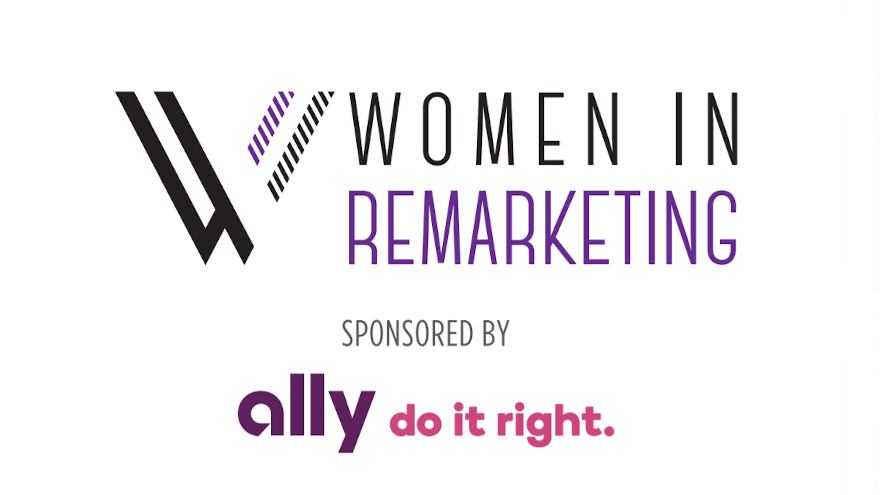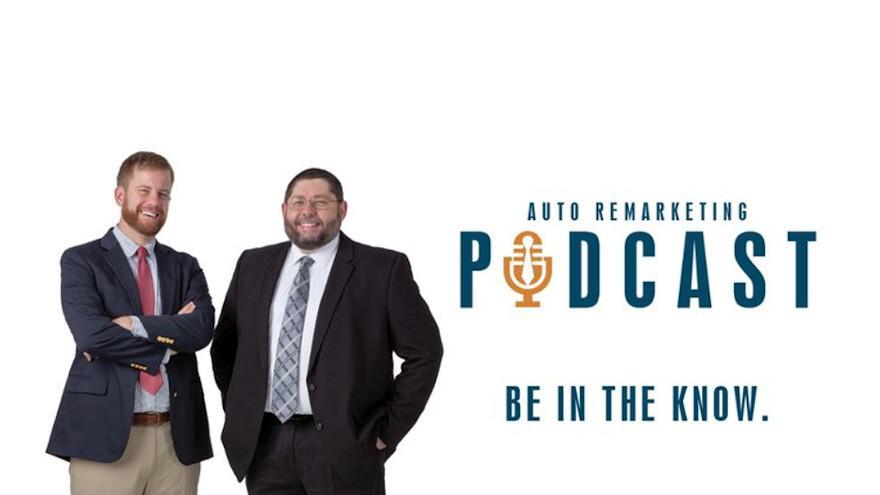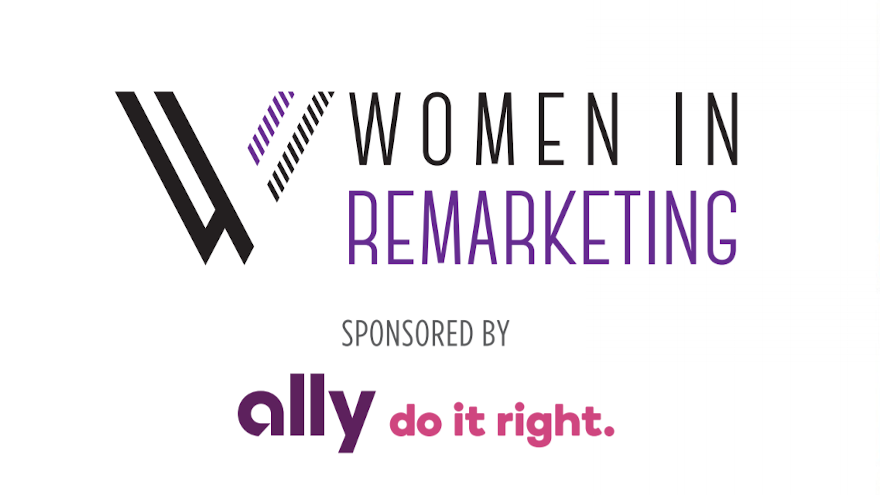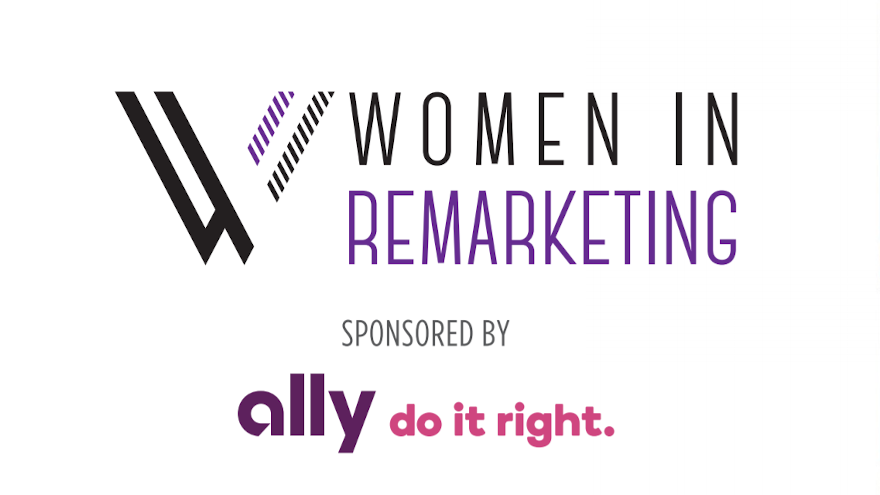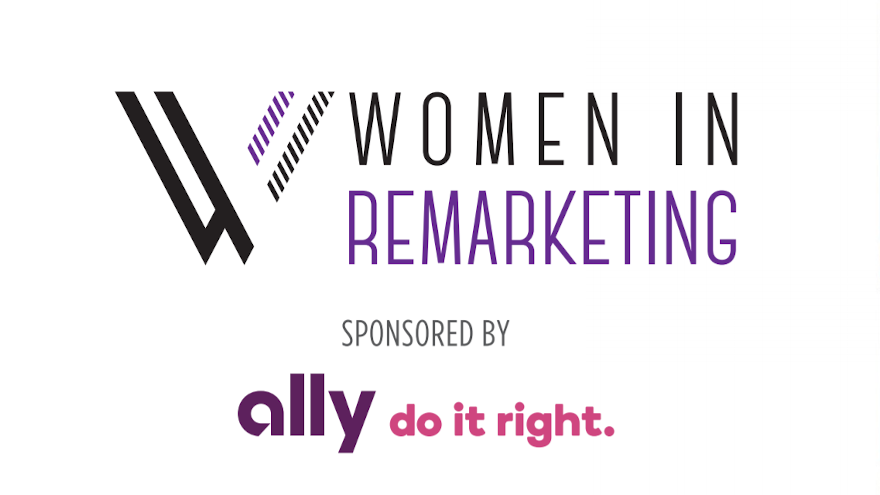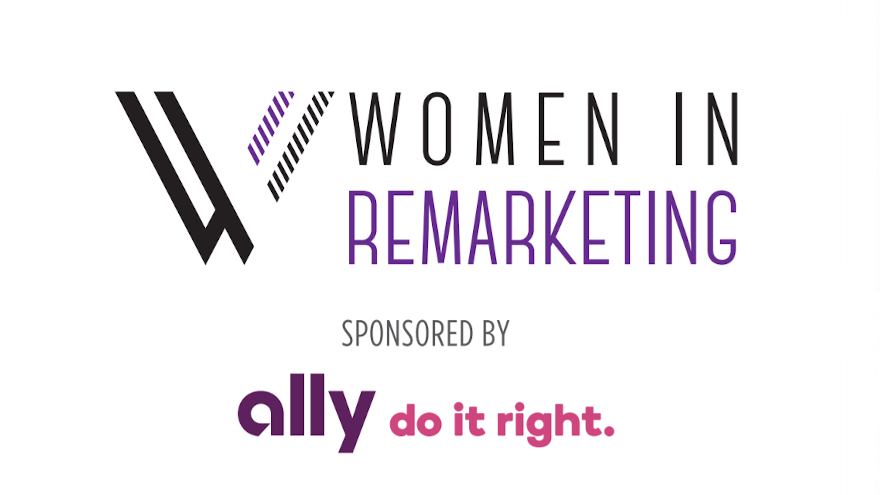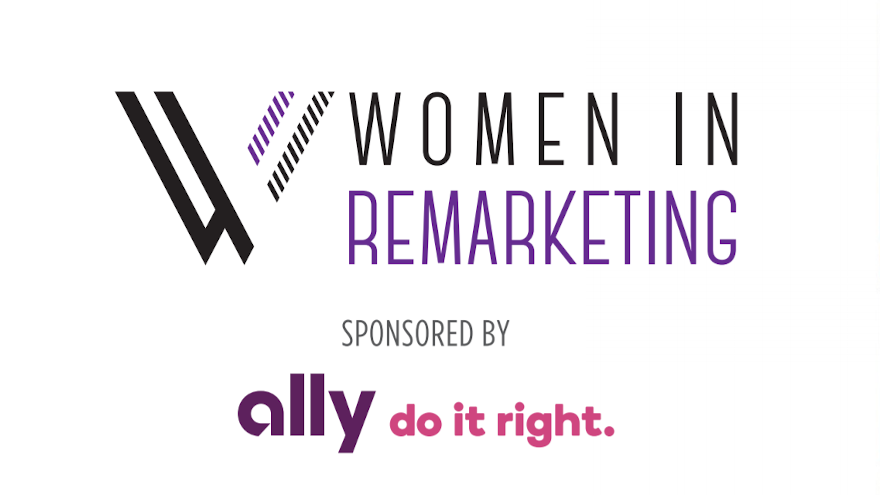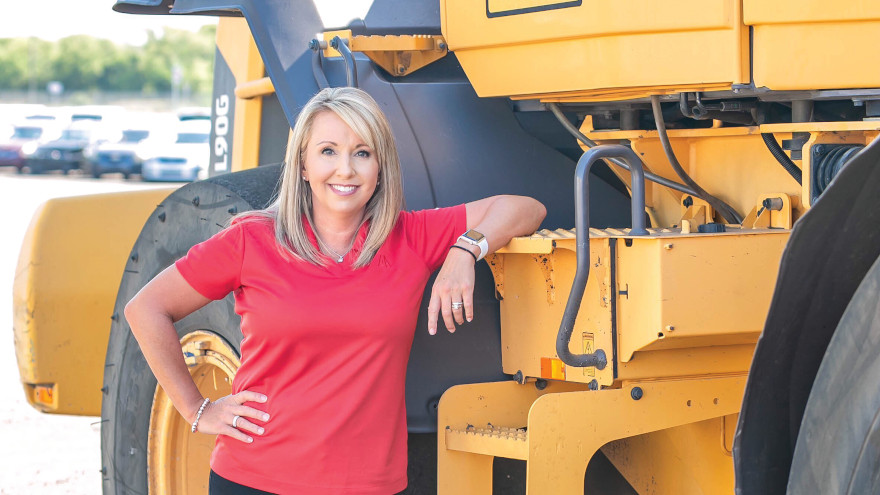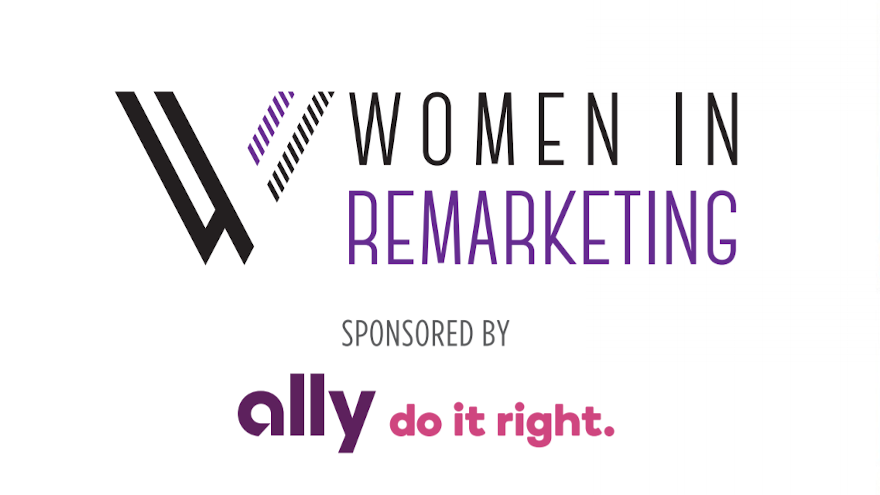Auto Remarketing is recognizing the 2021 Women in Remarketing honorees in the March issue of the magazine, and will be posting Q&As with each of these outstanding leaders on the website.
Next up is Britney Egbert of Dealers Auto Auction of Idaho.
Auto Remarketing: What do you enjoy most about working in the remarketing industry? But, also, what aspects of the business would you change and how?
Britney Egbert: I really enjoy the challenge each new account brings. At our auction, we strive to provide individualized service to each client. We understand that everyone has different things they need to be successful, and we want to help make that possible.
With that being said, not having everything be standardized can make things more difficult in trying to provide that excellent customer service we try so hard for. The industry is working on standardizing certain aspects, but trying to standardize everything just isn’t possible. So where it gives us an area to shine, it is also what makes the job that much more difficult.
AR: What are some improvements that need to be made in the industry from a diversity and inclusion perspective? What are some examples you’ve seen of D&I programs that have worked?
BE: I think a challenge in the industry right now is how to foster more successful women in remarketing who are trying to balance home life with work. I know for me, personally, I didn’t think I could fully do my job and still spend time at home with my children. So, I decided to take a step back from a full time roll in our fleet/lease office to a part-time position. I just didn’t feel like I could maintain the relationships with traveling the country and the daily customer service that is needed.
When my children are a little older, I would love to step back into remarketing in a more engaging way. But for now, I’m happy to assist our fleet/lease manager when I can, and help the customers I still work with as best I can. I think the conferences are a good way to stay in touch periodically throughout the year, because taking a couple years off in this job is tough.
Remarketers can switch roles or companies, and it is a full-time commitment to make sure you are staying relevant in the industry. Because if you aren’t in front of your customer, your competition probably is. I’d like to see more, smaller, group sessions in the conferences so you can have an opportunity to have group discussions and speak with customers and vendors a little easier.
The bigger the conferences get, the tougher it is to get in front of the people you traveled all that way to see. As a woman trying to balance work and home, having this close interaction opportunity would definitely help with being a more productive employee and save me from making several trips across the country to visit customers and miss time with my family.
AR: Describe a time when you were either a mentor or a mentee, and how that has shaped your career.
BE: I have been both a mentor and a mentee when it comes to the remarketing industry. I was lucky enough to be trained by our owner, who is also my father, at the age of 22 when I graduated college and came home to work for the family business. He taught me the importance of building genuine relationships and following through on my promises. He always made sure I knew to put the customer first with both words and actions.
After seven years in the main role of fleet/lease manager I decided to go to part time after having my first son. With this came training my brother-in-law to take over. It was difficult at first to put the accounts and relationships I had built in someone else’s hands, but I knew that with the same kind of mentorship I had, he could do it.
It was very different being in the senior role and trying to teach what I had learned over the years, but it really helped put into perspective all the hard work it really does take to make this position work. And thanks to his hard work, Alex, has been able to grow our fleet business more and more each year! He was even named one of the industry’s 40 under 40 this year!
AR: Describe a time in your career where you were challenged and how you overcame that challenge.
BE: I think one of the most challenging aspects is when you have a disagreement with a customer. Let’s face it, even if you have the best relationship, there will come a time when you disagree. It’s so hard to balance the customer is always right mentality with how you think the job could be done best. When you don’t see eye to eye, it’s important to have really good communication.
Being able to communicate without fear of losing an account really makes for the best relationships. I think open dialogue creates the best opportunity for you and the customer to be successful. We have to feel like it’s a partnership where our opinion in the industry is valued and listened to.
We might not always be right, which is why it’s so important to be able to have those conversations with our customers. In my particular case, it took being able to see the customer in person, walking around their cars and getting a better idea of what was important to them. I had to understand that it might not seem like an issue to me at first, but to them it was crucial. Being able to communicate this without letting emotions get in the way was what helped us solve the problem and learn what to expect for the next run of cars.
AR: What is the top trend/storyline in the remarketing industry that you’re watching this year?
BE: There are so many storylines to keep an eye on this year: stimulus checks, repossessions being delayed due to COVID-19, possible minimum wage hikes, just to name few.
Personally, I’d like to keep an eye on the wave of repossessions most likely coming down the pipeline. I know many companies have waited longer than normal to repossess a car due to COVID and possible job losses. But on top of that, we have people receiving stimulus checks, who are purchasing cars they most likely won’t be able to afford in this next year.
So not only do we have the older repos coming in, but another wave this year from those who used stimulus money to purchase a vehicle. This will create challenges in making sure we can do our jobs right. We need to have the transport trucks available to move the cars, the yard space to store them, employees to do condition reports, get them cleaned, and office staff to handle titles and payments. It’s a wave we hope to be ahead of in order to keep our customers happy. Their jobs will get more difficult, as well, if these cars all start to get repossessed at the same time.
AR: What is something you would tell your younger self if you could go back to when you started your career in remarketing?
BE: If I could go back and tell my younger self anything it would be to be more confident in myself. To be confident, and to remember to always be myself. This industry is very relationship-driven, but the best relationships are born out of being genuine.
Those are the business relationships that last. When both sides feel like there is a real trust and honest interest. You can only fake it for so long, so if you want to be successful long term, your customers, employees and vendors need to feel like they can rely on you, and they need to know the real you to be able to do that.
When you have that trust, the relationship can build into a lasting one. And when you have that kind of relationship, you can really start to see the success build for both you and the customer.
Greg Ross is the connected vehicles practice lead at motormindz, and he joins the show to discuss the role of connectivity in helping to make autonomy, electrification and shared mobility happen.
Plus, Ross shares some considerations for the used-car side of the connected vehicle market and much more.
To listen to this episode, click on the link available below, or visit the Auto Remarketing Podcast page.
Download and subscribe to the Auto Remarketing Podcast on iTunes or on Google Play.
Auto Remarketing is recognizing the 2021 Women in Remarketing honorees in the March issue of the magazine, and will be posting Q&As with each of these outstanding leaders on the website.
Next up is Robin Lyday, who is distribution center manager at GM Financial.
Auto Remarketing: What do you enjoy most about working in the remarketing industry? But, also, what aspect(s) of the business would you change — and how?
Robin Lyday: I love that every day brings new challenges. This business is a fast-paced environment with never-ending challenges and one wherein the landscape is constantly changing. Our industry has to change with demands in the market and has to be able to evolve as industry needs change. We have to continuously stay ahead of the game.
AR: What are some improvements that need to be made in the industry from a diversity and inclusion perspective? What are some examples you’ve seen of D&I programs that have worked?
RL: Awareness, compassion and vast understanding of different cultures and people is at the heart of any changes that needs to be made surrounding diversity and inclusion; this is not inclusive to just our industry.
Does our industry need to change? Yes, it does, but so does every other industry in the world and further down to a personal level for human beings.
I am very proud of the changes I have seen at GM Financial regarding these issues, they have taken this issue very seriously and have worked to ensure that everyone feels a sense of value and feels respected.
We work in a very diverse culture, and by making it a top priority and giving the issues a voice it gives great understanding to all people, regardless of their differences.
AR: Describe a time when you were either a mentor or a mentee, and how that has shaped your career.
RL: When I received my first assignment as a field remarketing specialist, I had the privilege of working with and being mentored by a 40 year General Motors employee. The history perspective and guidance gained from this working relationship provided me a firm understanding and basis that laid the foundation for many years of success in the field of remarketing. I went into the position with very limited knowledge of how the auctions work, reconditioning a vehicle and selling used cars through that channel.
This opened up an entirely new world for me, one that I have truly come to love and something that I am very passionate about. This is a remarkable industry that 17 years ago I did not even know existed.
AR: Describe a time in your career where you were challenged and how you overcame that challenge.
RL: When I came into the remarketing industry, there were not a lot of women that were in decision-making positions assigned to an auction on behalf of a financial institution. I had to develop not only my knowledge and abilities, I had to stand toe-to-toe with men who discounted me for the fact that I was a woman.
I was able to overcome the prejudice and unfair judgment by demonstrating consistent, accurate and firm resolution of all the skills necessary to perform at the same level and on the same stage as my male peers. I worked very hard to learn and accomplish goals set for myself, to become the best I could be at the job I was doing and to show that with hard work you can accomplish anything.
AR: What is the top trend/storyline in the remarketing industry that you’re watching this year?
RL: We are in a completely unprecedented time being in the mists of a pandemic that has significantly altered and changed the way in which our business is conducted. As I am hopeful this medical crisis passes, I am curious and intrigued by what permanent or long last effects it will leave in its wake.
The industry had to change and quickly to continue to sell cars in an ever-changing time earlier this year. The signs are very positive that used cars are in demand, and how we meet those demands with new technologies and ways to bring our cars to market will be interesting to watch.
AR: What is something you would tell your younger self if you could go back to when you started your career in remarketing?
RL: Embrace change, don’t be afraid to accept challenges and if you see an avenue you would like to pursue you are unstoppable if you put your best foot forward and use your mind to clear the way.
Auto Remarketing is recognizing the 2021 Women in Remarketing honorees in the March issue of the magazine, and will be posting Q&As with each of these outstanding leaders on the website.
Next up is Laura Thacker, who is CFO at Bel Air Auto Auction.
Auto Remarketing: What do you enjoy most about working in the remarketing industry? But, also, what aspect(s) of the business would you change — and how?
Laura Thacker: As I am sure most would answer, the best day in this industry is “Sale Day!” There is a hustle/bustle, “live action” atmosphere charge to the staff.
Working in the accounting department, presently what I am enjoying is the numbers, of course. Over the years, I have seen more sellers paid electronically and now we have more paid that way than by check.
At the end of the day, and every day, I am releasing the ACHs and wires, and tracking these amounts tie to our software reports.
As far as an aspect of the business to change, I believe this industry ebbs and flows, and evolves, quite fine.
AR: What are some improvements that need to be made in the industry from a diversity and inclusion perspective? What are some examples you’ve seen of D&I programs that have worked?
LT: Again, I believe, at least from my experience with our auctions, we do not have an issue with diversity or inclusion, so I can’t speak to that question.
AR: Describe a time when you were either a mentor or a mentee, and how that has shaped your career.
LT: With my staff, I don’t hold anything back. If they are doing a job, I tell them all they need to know, and grow. My perspective is it helps me in the long run, the company and them. I can only guess it has shaped my career, by getting the job done, and being a team player.
AR: Describe a time in your career where you were challenged and how you overcame that challenge.
LT: In the accounting field, changing banks can be a challenge. Especially in this era of online banking. When we changed banks a couple years ago, I would say that was a challenge. I overcame it by learning a piece of their online program each day/week over a period of a few months.
AR: What is the top trend/storyline in the remarketing industry that you’re watching this year?
LT: COVID has had a huge impact to all industries. We are watching when we can have full capacity in the lanes, and office areas again. We are debating the driving the cars through the lane vs not.
AR: What is something you would tell your younger self if you could go back to when you started your career in remarketing?
LT: I am a proponent for data analysis, so I would have liked to start databases earlier.
Auto Remarketing is recognizing the 2021 Women in Remarketing honorees in the March issue of the magazine, and will be posting Q&As with each of these outstanding leaders on the website.
Next up is Julie Smith, director of remarketing logistics at Element Fleet Management.
Auto Remarketing: What do you enjoy most about working in the remarketing industry? But, also, what aspect(s) of the business would you change — and how?
Julie Smith: Remarketing is an industry that always keeps me challenged. In remarketing, I can be creative and use my knowledge and experience to provide strategic remarketing solutions for both the business and our clients. The relationships in this industry are extremely important, and I think this last year in a more remote and virtual environment has really highlighted the relevance of that connectivity. As I progress through my career in remarketing, I look forward to gaining exposure to the developments in technology and staying ahead of the curve with implementation of that technology.
AR: What are some improvements that need to be made in the industry from a diversity and inclusion perspective? What are some examples you’ve seen of D&I programs that have worked?
JS: I think the industry is focusing on diversity and inclusion more and more each year. Within my team, we foster a culture where every voice is welcome, heard and respected. Continued industry leadership, committees and organizations focused on diversity and inclusion will help to continue to promote this culture within remarketing.
AR: Describe a time when you were either a mentor or a mentee, and how that has shaped your career.
JS: I have been lucky enough to work with a few very influential mentors within the Element Remarketing Team and the industry. Their passion for remarketing is contagious and they have helped provide guidance on how to balance both knowledge and growth in many different areas of remarketing. One mentor in particular has challenged me to stretch my strategic thought and identify new ways to improve logistics.
They have really shaped my career by encouraging me to keep learning and to adapt to change. This mentor also solicits feedback from me as well which has been an extremely powerful relationship of shared experiences to help us both grow and stay challenged.
AR: Describe a time in your career where you were challenged and how you overcame that challenge.
JS: Leading logistics within my company, there are always challenges ranging from client specificity, weather, vehicle issues, etc. I am continually challenged to find more efficient and effective ways to transport vehicles throughout North America.
The most exciting challenges I have worked through have been when I have received a complex request and have found a strategic way to execute on that request. The remarketing industry allows you to be creative and that is one of the aspects I love the most about my job.
AR: What is the top trend/storyline in the remarketing industry that you’re watching this year?
JS: The rapid move to digital sales and the impact of the COVID-19 pandemic on all aspects of the remarketing process has been something I have been watching very closely in 2021. The pivot that the remarketing industry has made in such a short amount of time has been remarkable and it will be important to be at the forefront of any upcoming industry changes.
AR: What is something you would tell your younger self if you could go back to when you started your career in remarketing?
JS: I have only been in the remarketing industry for a few years, but I think the most important thing I have learned is that this industry is built on relationships and strategic thought. It is so important to build connections and relationships with suppliers, vendors, customers, and peers. It is crucial to stay agile in this ever changing environment and to always strive to keep learning.
I continually cross paths with inspirational leaders in this industry and they have always been willing to share their experiences and their true passion for remarketing, which is extremely contagious. I love this industry and the experiences I’ve created so far and I look forward to a fulfilling career in remarketing.
Auto Remarketing is recognizing the 2021 Women in Remarketing honorees in the March issue of the magazine, and will be posting Q&As with each of these outstanding leaders on the website.
Next up is Laura Dunn, who is director of auction sales and logistics and Proficient Auto Transport.
Auto Remarketing: What do you enjoy most about working in the remarketing industry? But, also, what aspect(s) of the business would you change — and how?
Laura Dunn: In my industry, I love meeting people and providing an essential service that they need. Every week, I have an opportunity to meet someone new, and with that new someone … I learn something new!
The auction industry has always been exciting and intriguing to me. It is loud, fast-paced, high energy — just complete organized craziness. Before COVID, dealers bought digitally and in-person, which I thought was a good balance.
Digitally is ideal for the managers that can’t take the time to travel. And live for the buyers who purchase vehicles for multiple dealerships! I believe the networking of the dealers from all across the country being in one place every week was a huge asset for them to keep on top of the market. I have seen how that has greatly affected the flow of vehicles from auctions to dealerships since the pandemic. What used to be full loads shipping from one location are now pieces from many locations.
AR: What are some improvements that need to be made in the industry from a diversity and inclusion perspective? What are some examples you've seen of D&I programs that have worked?
LD: To be conscientious of your team’s diversity is just knowing them, spending time with them and supporting them. Every individual will have certain strengths in their types of diversity but a good team will represent them all. The seven pillars of inclusion is a no-nonsense way to achieve building a successful, prosperous, happy team. Access-Attitude-Choice-Partnerships-Communication-Policy-Opportunities. We all want to be welcomed, valued, have meaning in our jobs and in our lives. Team building is key!
AR: Describe a time when you were either a mentor or a mentee, and how that has shaped your career.
LD: My parents were my mentors. My father retired as a Master Chief Petty Officer of the Navy and my mother was a teacher. I was raised on a farm, which at times was hard work, but very rewarding. My brother and I had chores before and after school, along with our sports activities. My father, especially, instilled the mentally to work smart so that hard work was completely doable.
My parents also taught us to be accountable, because the people and animals on the farm depended on us, but that also we depended on them. That life lesson has always blessed me with the integrity to give everything I can concerning others so they can do the same.
AR: Describe a time in your career where you were challenged and how you overcame that challenge.
LD: I have been doing this business for over 30 years and there have been many, many challenges. This is going to sound so very cliche, but my father used to tell me the rickety bridge to cross life story.
And it that it will seem like it will not hold me when I try to cross but I have to cross to get to the other side, otherwise, I will not go anywhere. Once I do, it is a great feeling of accomplishment only to have many others to follow. My point is that if you always put your best self forward, meaning integrity, trust, communication, work ethic and you will have the great relationships and skills that overcome those challenges.
AR: What is the top trend/storyline in the remarketing industry that you're watching this year?
LD: The COVID pandemic. Reading and listening to podcasts almost every day on how this industry is adapting and pivoting on the way they are doing business during this time. Things are changing so quickly, by the week, that it is of the utmost importance to stay on top of it.
AR: What is something you would tell your younger self if you could go back to when you started your career in remarketing?
LD: I would just say enjoy your journey, build great relationships and listen and learn from others. Things are constantly changing so read, evolve and give your best self at all times
Auto Remarketing is recognizing the 2021 Women in Remarketing honorees in the March issue of the magazine, and will be posting Q&As with each of these outstanding leaders on the website.
Next up is Deepthi Uppalapati, who is the strategy & analytics leader for remarketing at Capital One.
Auto Remarketing: What do you enjoy most about working in the remarketing industry? But, also, what aspect(s) of the business would you change — and how?
Deepthi Uppalapati: Reimagining remarketing strategy for our customers’ sake gives me immense satisfaction and excitement to drive change. Any improvement we can achieve in the remarketing process to help increase the possible value for the repossessed collateral will have a direct impact on our customers by lowering the deficiency balance on their auto loan.
This also ties directly to Capital One’s mission of helping customers by bringing ingenuity, simplicity, and humanity to banking, which provides motivation for me and my team to make a meaningful impact.
I also enjoy how we leverage data and artificial intelligence in our decision making to enable our remarketing team and processes to be as effective and efficient as possible. One aspect of streamlining the remarketing industry is to have consistency and accuracy in the end-to-end process.
For various legacy and business reasons, the remarketing operational processes, systems, and data are highly manual and not consistent across different players. As we optimize these processes in being more efficient, we need to consider building intelligent, technology driven digital solutions that are consistent and accurate. For example, the current vehicle inspection and condition report process is heavily dependent on the condition report writer.
However, leveraging image recognition and artificial intelligence to assess the level of damages could help improve the accuracy and efficiency of the process, thereby leading to quick turnaround in repairs.
This will also help enable consistency in damage estimates across different auction vendors.
AR: Describe a time when you were either a mentor or a mentee, and how that has shaped your career.
DU: I have been fortunate to have many strong, confident and fearless leaders in my personal and professional life as mentors.
They have challenged and encouraged me to think differently by asking difficult questions and be more of a servant leader as I grow in my career. My career has evolved over time and was nurtured by great leaders who believed in my potential and provided real-time thoughtful feedback.
One of the best pieces of advice I’ve gotten is to always take the long-term approach in decision-making, working back from an ideal vision. I’ve taken that to heart, and it has helped bring in the right perspective for many business and personal decisions time and again.
Whether it was through connecting me with someone, providing career guidance, being a thought-partner, delivering thoughtful coaching or mentoring, or pushing me to stretch for that next challenge or role, I’m filled with a deep sense of gratitude for the village that has supported my career. I certainly ensure I pay it forward in shaping the growth and career path for my mentees by sharing my learning and experiences over the years.
AR: What is the top trend/storyline in the remarketing industry that you're watching this year?
DU: Due to COVID-19, we saw big disruption in the remarketing industry in 2020 with nearly all auctions going completely digital to keep everyone safe. Overall, it created an opportunity to advance digital tools and online auctions in a relatively short time span, resulting in a smooth transition during an unprecedented time. As the pandemic unfolds, I’d like to see how the auctions leverage technology and AI-based tools to further drive operational efficiencies.
Auto Remarketing is recognizing the 2021 Women in Remarketing honorees in the March issue of the magazine, and will be posting Q&As with each of these outstanding leaders on the website.
Next up is Jamye Carpenter, vice president of business development at Red Mountain Technologies/AutoCheck Auctions.
Auto Remarketing: What do you enjoy most about working in the remarketing industry? But, also, what aspect(s) of the business would you change – and how?
Jamye Carpenter: I know it sounds cliché, but I enjoy the people the most. This is a small industry where your friends become like family, and getting to work with people you like is a special niche that you can’t get just anywhere.
Personally, it is rewarding to know that by working for a company like AutoCheck Auctions, we are helping fight fraud and helping our customers avoid costly mistakes.
Vehicle history not only impacts the value of a vehicle, but the safety as well. By running an AutoCheck on vehicles within this space, we are helping the industry ensure that the vehicles running through auction lanes are safe.
Transparency is important, and it is more important now than ever before as we see the trend of increased online auto purchases continue. COVID brought about a movement that none of us expected, but one that has proven we are a resilient industry, and we are one that can weather the storm. I fully expect to see our industry continue to adapt and to see the online movement grow stronger, and I look forward to being a part of that evolution.
AR: What are some improvements that need to be made in the industry from a diversity and inclusion perspective? What are some examples you've seen of D&I programs that have worked?
JC: Representation matters. When we are recruiting across the spectrum of the industry, people want to be part of a group where they feel they fit in and where they feel they can be a part of something bigger than themselves. Diversity and inclusion have proven to be integral in promoting creativity and a sense of belonging. By creating these connections, it forms a culture of respect allowing everyone to feel valued and connected.
When you have a diverse team, you have a sense of connection that fosters higher productivity and retention among employees. Programs recognizing women, like the Women in Remarketing award, is one example of industry progress towards creating a culture of inclusivity and openness.
AR: Describe a time when you were either a mentor or a mentee, and how that has shaped your career.
JC: My first mentor was Manheim’s Ruth Hart-Stevens, the first female president of NAAA. She took me under her wing my very first convention and introduced me to others within the industry. She helped make me feel more comfortable each time I was at an industry function.
My biggest mentor and advocate was Dave Angelicchio, also a former NAAA president. He saw something special in me, appointing me to my first committee. He supported me so I could continue to grow and develop while fostering the love I have for the auction and remarketing world. I will be forever grateful to him for pushing me to get my MBA, making sure I had a seat at the table, and encouraging me to get involved in committees so I could be part of the vision and change within our industry.
I am extremely lucky to have a group of women I meet with quarterly within the remarketing space. It is through their comradery I feel supported in the role of vice president in a male-dominated industry. We brainstorm, share industry trends and talk shop, but most importantly, we support each other as working moms.
I am also blessed to be a mentor to young college women graduating and beginning their careers through the Women and Wisdom Mentoring Program. Being a mentor is fulfilling and mutually beneficial. I am re-energized by mentoring and working with young women who constitute the future business leaders who will transform our nation’s economy.
AR: Describe a time in your career where you were challenged and how you overcame that challenge.
JC: Twenty years ago, I had my first child, and 14 months after she was born, I had my second. As a sales manager, I didn’t feel I could take a maternity leave with either of them because I was afraid my productivity and effectiveness would suffer. I traveled to a conference when my youngest daughter was six weeks old to speak in front of a dealer panel because I didn’t want to be viewed as “soft” or “fragile” within a male-dominated industry. I was fearful of being looked upon differently because I was now a mom.
After I was diagnosed with cancer in 2009, I realized just how important it is to take care of yourself. I realized that balance is key and that you can be successful in your career while being successful at home. As a mom, you are the CEO of your household, and when you travel every week you have to make sure calendars are synced, schedules are made and followed, and everyone is where they need to be, with what they need to have.
Being a working mom is the hardest job I have ever had, but also the most rewarding. I hope my two daughters will look back on their childhood and remember they had a mom that paved a path for them to be whatever they want to be and that taught them they can be successful being both a mom and an executive.
AR: What is the top trend/storyline in the remarketing industry that you're watching this year?
JC: The current marketplace has provided us with challenges and opportunities that also lead to more questions as we move into 2021. With 2020 behind us, we continue to watch COVID, the new strain and the vaccine. How long will it take for us to get back to normal or create our new normal? What will future conventions look like? Will they be in-person, online, or some sort of hybrid?
Dealerships, auctions, OEMs all closed during the COVID crisis, and we saw all of these segments reinvent themselves. What will that reinvention look like in 2021? Remarketers will look for creative ways to dispose of vehicles in the most efficient, cost-effective ways possible.
I predict lines are going to continue to blur when it comes to defining what is retail and wholesale activity. Market trends in both wholesale and retail segments will be something we should all watch closely.
After the industry was hit hard by COVID, the bounce-back has been a surprise to most. How will online and face-to-face merge to keep the positive momentum going?
AR: What is something you would tell your younger self if you could go back to when you started your career in remarketing?
JC: Get your MBA when you are young. Don’t be afraid to be authentic and uniquely you. You don’t have to sacrifice being female or a woman to have your career. I would tell myself to take the maternity leave, take time off to go through treatments, and stand up for yourself and others when you can.
You don’t have to make yourself bigger to be seen, but you don’t have to make yourself smaller either. What you have to say is important.
Be who you were created to be; in my case, a cancer-surviving, working mom and automotive executive.
Auto Remarketing is recognizing the 2021 Women in Remarketing honorees in the March issue of the magazine, and will be posting Q&As with each of these outstanding leaders on the website.
Next up is Michelle Casper, regional vice president at IAA.
Auto Remarketing: What do you enjoy most about working in the remarketing industry? But, also, what aspect(s) of the business would you change – and how?
Michelle Casper: I enjoy the fast pace of the industry. There is always something happening, whether it’s the next Category 5 hurricane to hit the coast or helping a buyer navigate our online systems. I am challenged daily and live for it!
AR: What are some improvements that need to be made in the industry from a diversity and inclusion perspective? What are some examples you’ve seen of D&I programs that have worked?
MC: Obviously, I’d like to see more women in leadership positions, but I’m also excited and proud to say at IAA we have recognized the need for diversity, equity and inclusion. We are developing the framework for our own DEI council to ensure we have a culture that does not limit growth and opportunity.
AR: Describe a time when you were either a mentor or a mentee, and how that has shaped your career.
MC: I’m very thankful for the mentor I’ve had in our senior vice president, Scott Guenther. The problem-solving, team-building and leadership skills he has shown me over the years have been immeasurable. In fact, because of those skills I’ve been able to be a mentor to others in our organization, helping them to continue on their road to success within IAA.
AR: Describe a time in your career where you were challenged and how you overcame that challenge.
MC: I’d have to say 2020 was a very challenging year. COVID-19 brought about challenges we’ve never seen before. It definitely showed us how important the safety of our employees, clients and customers are and our responsibility to meet their needs. The entire experience brought us all closer as a team.
AR: What is the top trend/storyline in the remarketing industry that you’re watching this year?
MC: Autonomous vehicles is the most interesting auto trend out there. I grew up watching “The Jetsons.” I’m ready to see the growth and development of self-driving cars. If we are lucky, maybe vehicles that fly will be next!
AR: What is something you would tell your younger self if you could go back to when you started your career in remarketing?
MC: I’ve been in this industry 22 years. In those days, especially as a woman, it was easy to feel you weren’t measuring up to your male peers. I think I would tell myself, you don’t have to be perfect. It’s OK to get it wrong; every mistake is a lesson, not a failure
Auto Remarketing is recognizing the 2021 Women in Remarketing honorees in the March issue of the magazine, and will be posting Q&As with each of these outstanding leaders on the website.
Next up is Tricia Short, who is general manager at Akron Auto Auction.
Auto Remarketing: What do you enjoy most about working in the remarketing industry? But, also, what aspect(s) of the business would you change — and how?
Tricia Short: There is never a dull moment! This industry is ever-evolving, it keeps me on my toes and there is always a problem to be solved. I have always enjoyed analytics and working with numbers, so I thrive in that area. Luckily, this industry gives my brain plenty to feed on regularly. I also enjoy the connections and friendships made along the way within my own organization as well as my peers.
AR: What are some improvements that need to be made in the industry from a diversity and inclusion perspective? What are some examples you’ve seen of D&I programs that have worked?
TS: If I could sum this up in one word it would be “AWARENESS.” As an industry and a society, we need to know that we are doing everything in our power to make those around us aware of peaceful and positive thinking. As employers, we need to be sure that our staff knows we support a safe and positive work environment for all members.
Even through everything 2020 has thrown at us, we still managed to find ways to do team-building exercises within departments to bring a good sense of comradery and connection to co-workers. As an industry, taking the “diversity and inclusion pledge” is a good place to start and taking that back to your employees and asking them to take it as well will show them your commitment level. As a leader in my company, I work very hard to bring the employees into the conversation and not talk at them but to them whether it is problem solving, new ideas, or company growth. Listening with your ears and not with your mouth, showing each person they have a voice, and that we are listening, I feel makes us a successful company.
AR: Describe a time when you were either a mentor or a mentee, and how that has shaped your career.
TS: I feel that I was fortunate to mentor several current senior managers in our company. Being a woman in this industry has come a long way over the years. Some of those positions held by woman within our company that I have brought up through the ranks are controller, director of HR/payroll, dealer relations manager and online manager.
I am a firm believer in hard work and leading by example. I started as a block clerk in this business 25 years ago, and over the years I have learned every possible aspect of our company. My parents taught me that as they started at the ground level and worked their way up within their careers to top management positions.
AR: Describe a time in your career where you were challenged and how you overcame that challenge.
TS: I would say a worldwide pandemic has been the hardest obstacle I have faced over the years. I am sure I speak for many of the men and women in this industry that COVID-19 had a drastic impact on the auto remarketing industry. I was able to overcome this challenge because of the amazing team we employ that came together to conform to all the changes being regulated. We had to make some tough decisions during this time, but we did it together and that is what pulled us through the hard times.
AR: What is the top trend/storyline in the remarketing industry that you’re watching this year?
TS: One of the trends I will be watching this year is cars still being the main method of transportation. Over the past couple years, the futurist had been predicting the extinction to some degree of the car owner in that they are just going to take some form of mass transit. The pandemic has shown us that people feel safer in their own car. I look for this to have a very positive impact on our industry.
AR: What is something you would tell your younger self if you could go back to when you started your career in remarketing?
TS: I am very pleased with the life path that I have chosen. I would say follow your heart and be passionate about your choices and commitments. Keep working hard and if you fall pick yourself up, dust yourself off, and get back after it. You make your own way, nothing is given.

